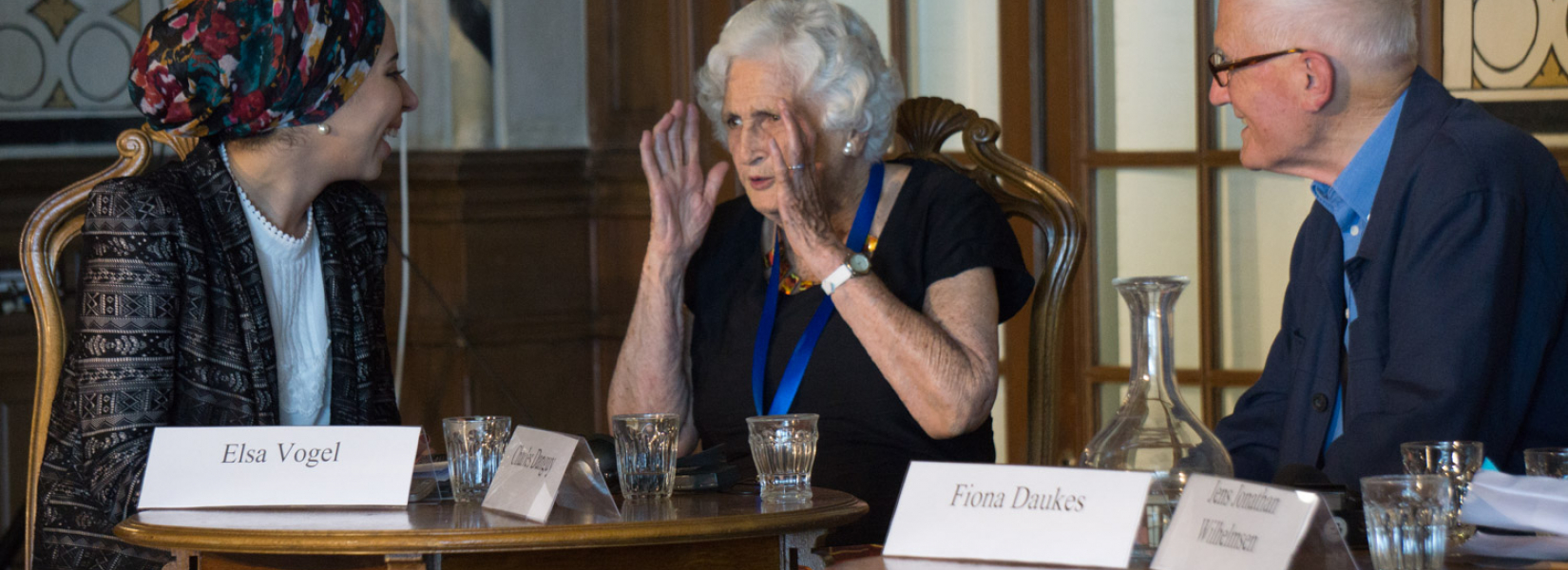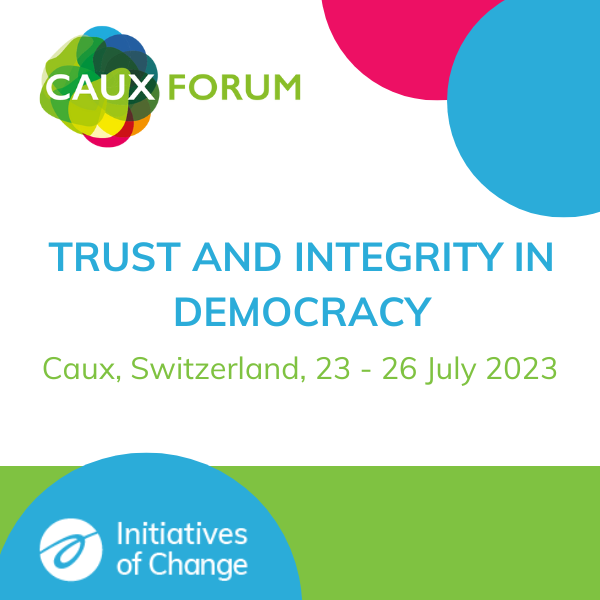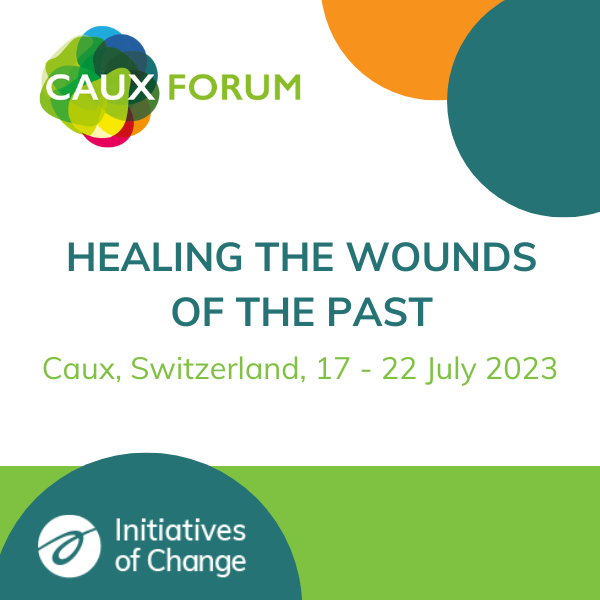AEUB Opening: 70 Years of Trust Building in Europe
Caux Pioneers Passing the Baton to the Younger Generation
20/07/2016
It is 70 years since 95 Swiss families bought the Caux Palace Hotel as a place where people from the warring nations could meet after the Second World War. The anniversary has been marked by several public events in the course of the CAUX-Initiatives of Change summer conferences.
On Tuesday, 19 July 2016, a public event kicked off the conference Adressing Europe's Unfinished Business on the theme ‘Passing the baton’, with four of those who were young when they participated in Caux conferences at that time. They were hosted by two of today’s young people, Noucayba Soltani a post-graduate student from France, and Jonathan Nelson, a teacher from Norway. Noucayba said, ‘Each of us has a responsibility to rethink Europe. Everyone can make their contribution. If we look around the world, nothing is working. There is war, refugees, and no one knows what to do. But Europe has faced great difficulties and it overcame them. If we don’t learn the lessons of the past, we are condemned to repeat them.’
Jens Wilhelmsen from Norway had been a junior member of the Resistance in Norway before he came to Caux in 1946. Elsa Vogel was a medical student in Paris who narrowly escaped a massacre by a Nazi soldier in the hours before Paris was liberated. Fiona Daukes’ father was a British chaplain with the Royal Air Force who had stayed with his men on a ship which was sunk by a German torpedo rather than save his own life. And Charles Danguy from Geneva had discovered Caux by chance because of his passion for the Swiss railway system!
 For Jens, overcoming his hatred for the Germans was a particular challenge. But having done so, the subsequent experience of spending five years among the miners of the Ruhr ‘witnessing the hardship of their lives, and the courage with which they fought for their convictions’ had given him a love for the Germans. He believed that the efforts he had been part of in the Ruhr at that time had helped turn class war in the area into cooperation between management and labour.
For Jens, overcoming his hatred for the Germans was a particular challenge. But having done so, the subsequent experience of spending five years among the miners of the Ruhr ‘witnessing the hardship of their lives, and the courage with which they fought for their convictions’ had given him a love for the Germans. He believed that the efforts he had been part of in the Ruhr at that time had helped turn class war in the area into cooperation between management and labour.
All of them referred to the challenge they had encountered in Caux to make a new start by looking at themselves honestly, and putting right anything they had on their consciences. Elsa realised that she was resentful of the way she had been treated by her family because she was illegitimate. ‘I realised that you can’t be a victim all your life. You have to face the choices you made and their consequences, and change and move forward.’ As a result of accepting that, she said, ‘A wind of new life swept into my heart and I felt I was a new person’ and she became a full-time volunteer with IofC, serving on all five continents.
Charles stressed the importance of another tool of IofC, the ‘quiet time’ – the daily practice of spending time in silence to seek correction and direction. It had led him into a 30-year ministry with IofC to members of the European Parliament, connecting MEPs and citizens from around Europe.
Fiona was filled with hope when she arrived in Caux in 1946 aged 15, particularly by meeting many other young people ‘who seemed to have a light in the eye and a sense of purpose’. She decided not to embark on an acting career, but to give all her time and energy to work with IofC, and had done so ever since. She and her husband subsequently lived in four European countries. She said, ‘We are facing ever more anger, hate and violence, but as we use our hearts to care for one another and to listen to that “arresting tick”, which I believe is the voice of a higher power, we will bring something entirely new and fresh to our very dear, exasperating old continent’.
Gilles Grin, Director of the Jean Monnet Foundation and historian at Lausanne University, rounded off the event with a reflection on the evolution of the European Union, its different phases and the crises it had passed through. His conclusion: ‘The European project is more relevant than ever’!
 Antoine Jaulmes, president of the CAUX-IofC Foundation then proceeded to officially open the AEUB Conference and called for ‘a necessary change of attitude to address the issues and to overcome the lack of trust between European countries’.
Antoine Jaulmes, president of the CAUX-IofC Foundation then proceeded to officially open the AEUB Conference and called for ‘a necessary change of attitude to address the issues and to overcome the lack of trust between European countries’.
- Follow the Addressing Europe's Unfinished Business 2016 conference live on Facebook!
- More of Antoine Jaulmes' insights on addressing Europe's challenges in daily videos on Youtube (in French).































